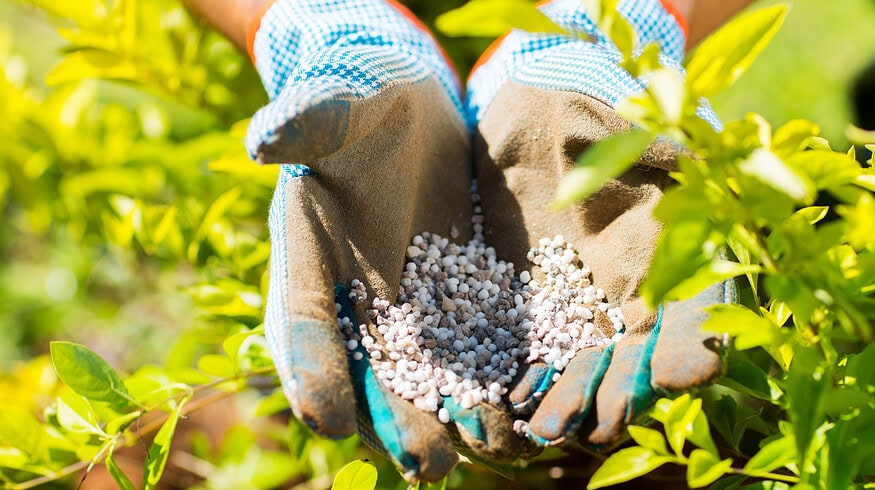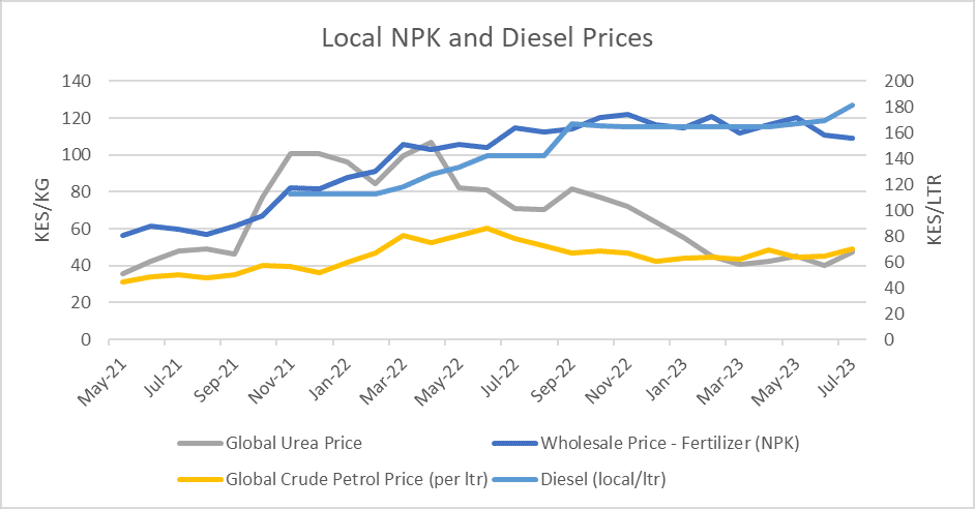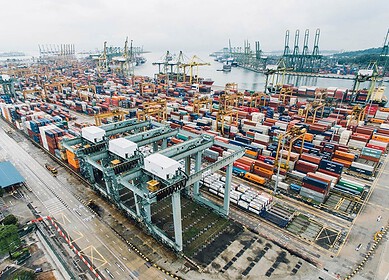Kenya’s Fertilizer Subsidy Program supports farmers amidst economic challenges

Kenya’s National Fertilizer Subsidy Program (NFSP), launched in the short rainy season of September 2022, stands as a crucial initiative by the government to increase food production and address rising food prices. The program, which distributes fertilizer at half the commercial price, has seen the disbursement of about 3.5 million 50 kg bags across 41 counties, funded by a 3.55 billion shilling ($23 million) subsidy outlay. This effort by the Ministry of Agriculture and Livestock Development (MoALD) is part of a broader strategy to support Kenya’s agricultural sector and stabilize food prices.
However, the effectiveness of fertilizer subsidies in promoting agricultural productivity and reducing food costs is influenced by various factors, including fuel prices and global market dynamics. A team of experts from the CGIAR Initiative on National Policies and Strategies conducted a rapid assessment of the NFSP, considering its impact within the larger economic context that affects agricultural productivity and food prices. This involved analyzing data from multiple sources, including the Kenya Agricultural Market Information System (KAMIS), World Bank Pink Sheet data, and the Energy and Petroleum Regulatory Authority (EPRA), complemented by expert interviews and insights from field service providers.

The assessment revealed several critical issues:
- Low Adoption of Modern Agricultural Technologies: Despite efforts to increase fertilizer use, the adoption among Kenyan smallholders has remained low, contributing to consistently below-average agricultural yields. The NFSP’s non-targeted approach raises questions about its accessibility and effectiveness in reaching farmers inexperienced with fertilizer use.
- Preference for Non-Subsidized Fertilizer: The nutrient composition of subsidized fertilizers has impacted adoption rates, with farmers favoring non-subsidized options. This preference is partly due to soil acidity concerns linked to the long-term use of certain subsidized fertilizers.
- Challenges in Distribution: Transitioning from a voucher-based system to distribution through the National Cereals and Produce Board (NCPB) has introduced transaction costs and may have discouraged uptake among smallholder farmers. This shift also risks crowding out the private sector, which previously played a significant role in fertilizer distribution.
The analysis also highlighted that despite falling global urea and crude petrol prices, domestic prices for NPK and diesel fuel remained high, contributing to increased food prices. This situation is exacerbated by rising transport, input, labor costs, and supply chain disruptions, coupled with recent tax changes affecting fuel prices.
In response to these challenges, the assessment suggests several strategies for improving the effectiveness of fertilizer policies. These include revisiting the voucher system, enhancing agricultural extension services, and optimizing fertilizer use through better soil testing facilities. Addressing transportation fuel costs and implementing a more gradual approach to changing fuel taxation are also recommended to mitigate economic pressures on Kenya’s agricultural sector.
This in-depth examination of Kenya’s NFSP highlights the need for a comprehensive approach to agricultural policy, considering the interconnected factors influencing productivity and food prices to ensure food security and economic resilience.
Source: IFPRI
Enjoyed this story?
Every Monday, our subscribers get their hands on a digest of the most trending agriculture news. You can join them too!












Discussion0 comments